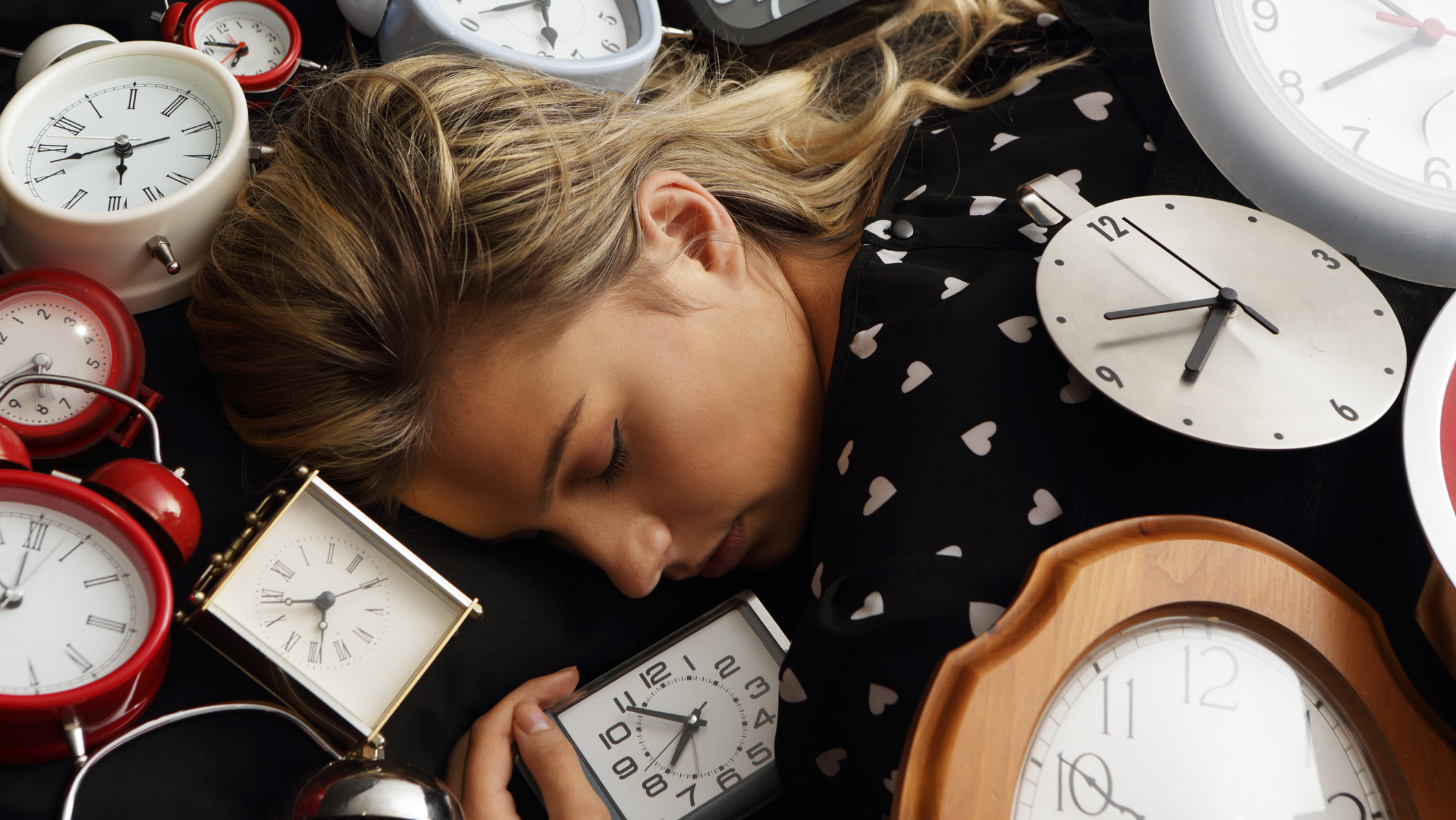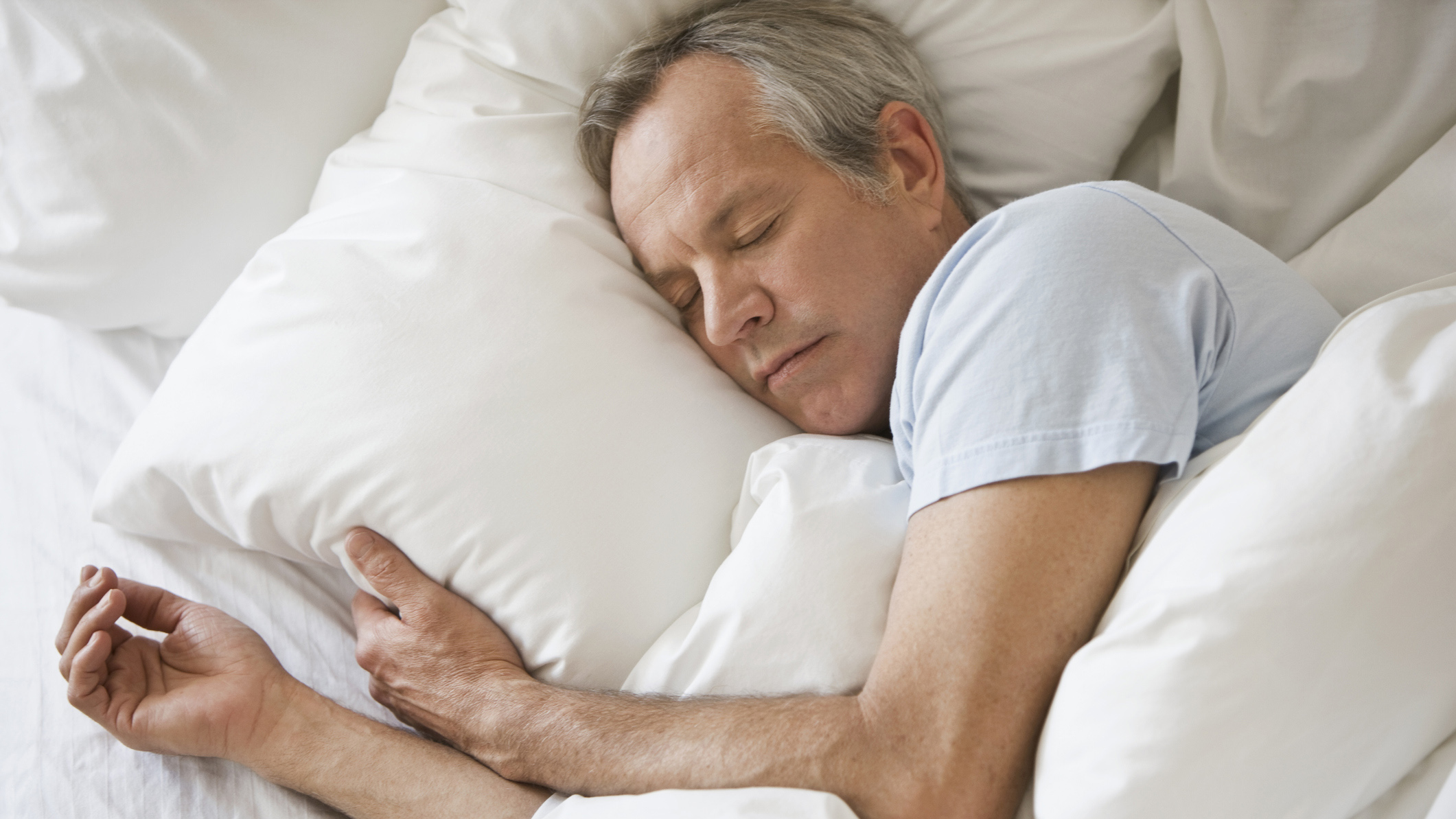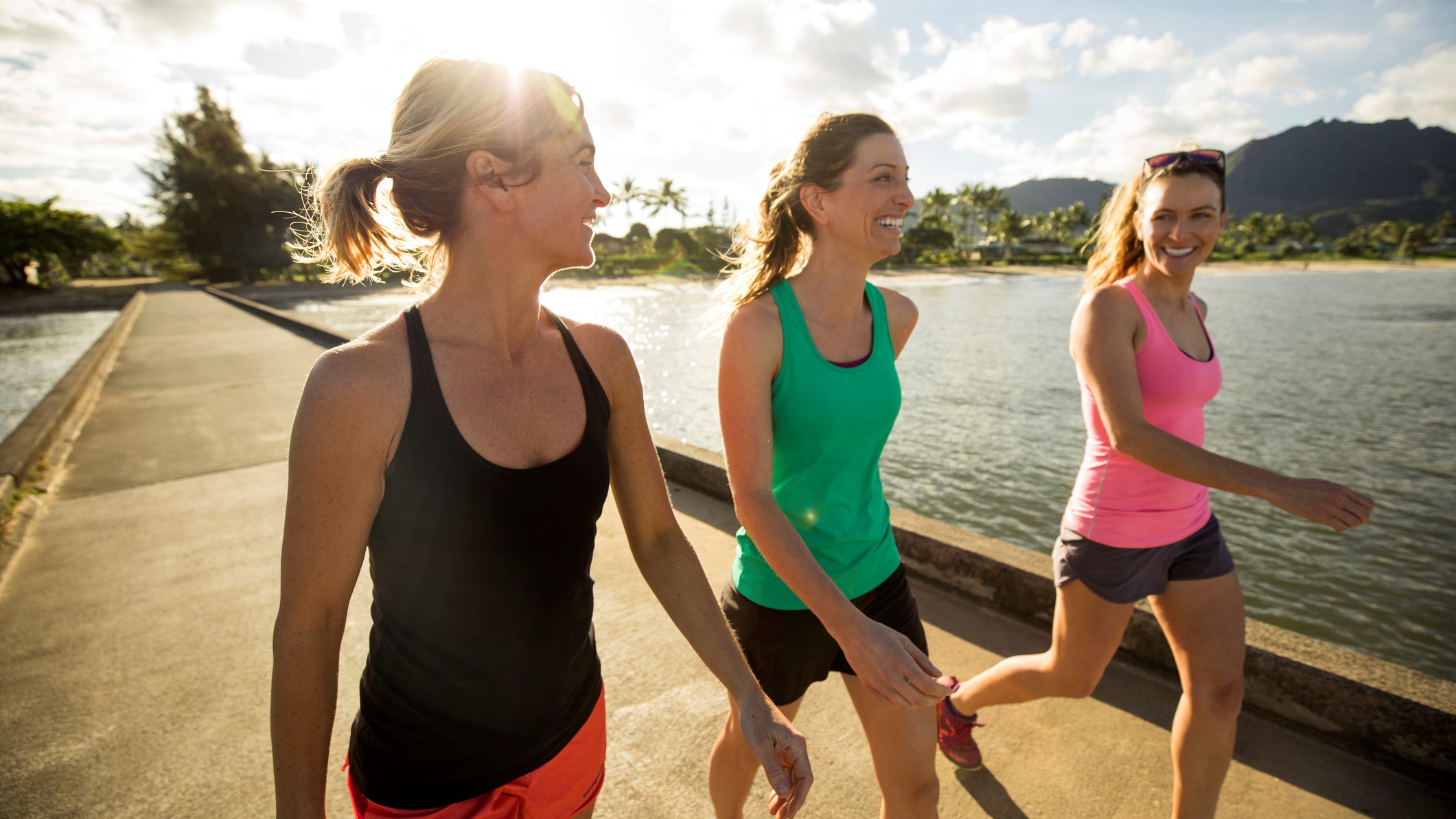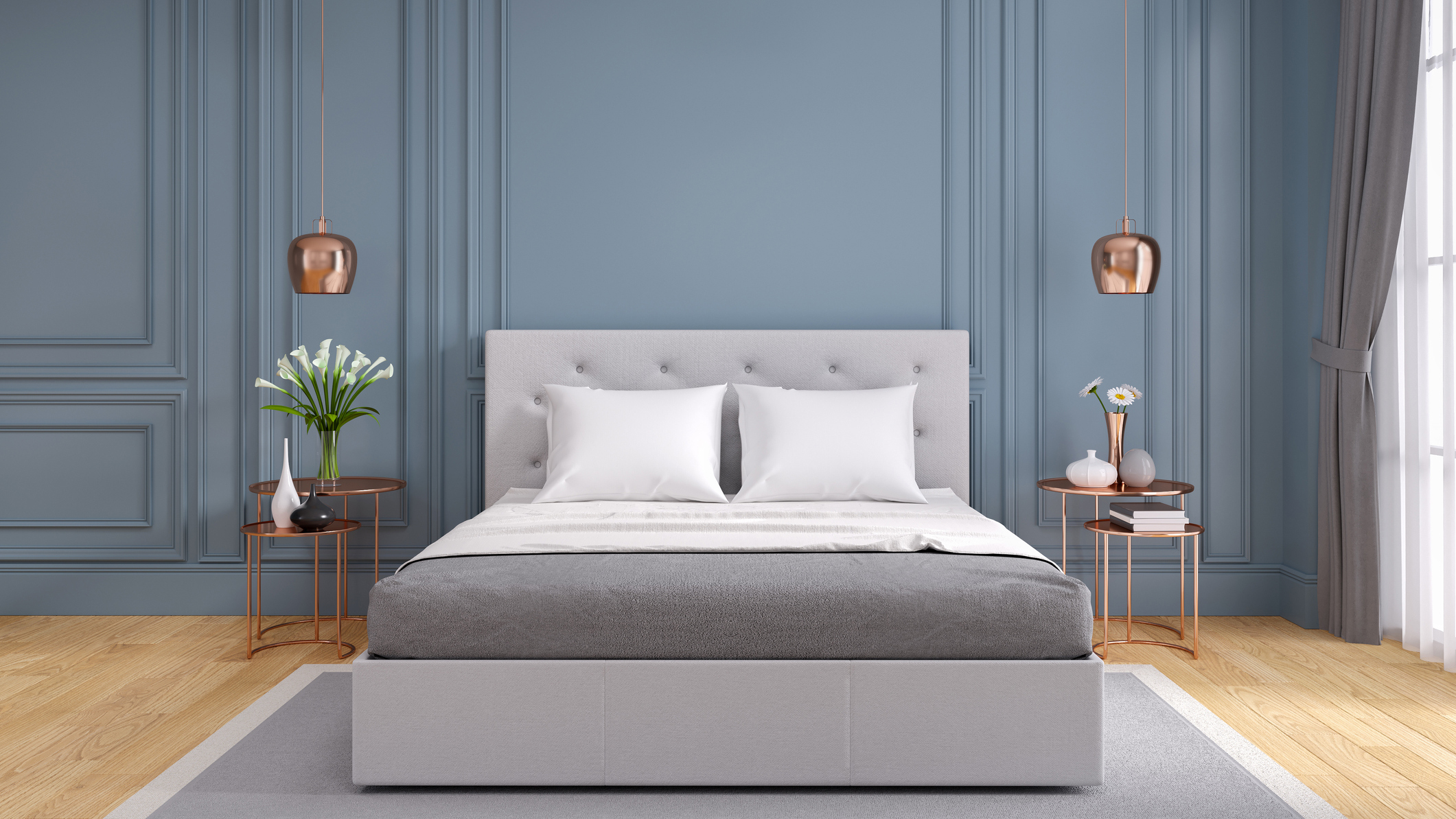Can you get 8 hours’ sleep in 3? Experts explain why you shouldn’t try
Been Googling how to sleep 8 hours in 3 hours? Two sleep experts respond

With so much to contend with, it can be tempting to skimp on sleep to cram in more ‘life’. This has led to a rise in the number of people asking how to sleep eight hours in three, but is that even possible? And what would happen to your body if you did that regularly? We asked two sleep experts to wade in, and to also explain how to sleep better at night naturally.
CDC guidelines state that adults should get 7-9 hours of sleep a night in order for our bodies to rest, fight viruses and give us enough energy for the following day. That number may change if you’re sick or pregnant. But getting a consistent amount of sleep can be hard, with some people, such as new parents, often getting just three hours’ a night.
So for those of you who feel like you don’t have time to sleep, here we speak to two experts about the ‘eight hours in three’ myth, and how sleep deprivation affects health. We also dig into the benefits of daytime napping to make up for less shut-eye at night. Here’s what they had to say…
- Read more: Man sleeps for 30 minutes a night to 'double his life' — but does it work? A doctor responds
Sleeping 8 hours in 3 hours: is it safe?
If work or a busy social life means lots of late nights and early mornings, your sleep levels will be affected. Carolyn Nicholas, sleep expert and director of coaching at Able, says your body can only last so long without enough sleep. In fact, mild sleep deprivation (less than six hours a night) for one week can negatively affect genetic expression in over 700 genes.
“Our stress hormone, cortisol, is likely to be raised after too little sleep,” adds Nicholas, “which in turn means that our insulin levels will also be raised. This can promote fat storage, and it can negatively affect cognitive function and decrease our immune function.
“Lack of sleep can also affect our hormones, lead to high cravings of simple carbs, and also increase anxiety, depression and irritability.”

Why most adults need at least 7 hours a night
Not all adults need seven to nine hours’ sleep a night. Some of us can function well on five to six hours, but this depends on your genetics and chronotype – the behavior of your circadian rhythm. Nicholas also explains that it will depend on your age (here's how much sleep you need by age) and quality of sleep (deep and REM).
Sign up to get the BEST of Tom's Guide direct to your inbox.
Get instant access to breaking news, the hottest reviews, great deals and helpful tips.
When you’re asleep, your immune system produces protective cytokines and infection-fighting antibodies and cells
Hope Bastine, psychologist
“Ask yourself: do you need caffeine to get you going, or are you waking feeling refreshed and ready to go? If the answer is the latter, then chances are you’re getting enough good quality sleep.”
Hope Bastine, leading psychologist and sleep expert for Simba Sleep, reveals how a lack of sleep means you pick up viruses more easily.
“When you’re asleep, your immune system produces protective cytokines and infection-fighting antibodies and cells. It uses these to fend off foreign substances like bacteria and viruses. At the same time, these cytokines and other protective substances also help you sleep, giving the immune system more energy to defend against illness.” (Here's a closer look at how sleep impacts your immune system.)
How to manage short-term sleep deprivation
There will be times when getting enough sleep just isn’t on the agenda, such as when you’re new parents. In those types of scenarios, how can you stay as healthy as possible while getting just a few hours sleep each night?
According to Nicholas, walking, meditation and having the right foods to hand is the answer: “Walking increases blood flow to the brain and reduces stress. You will feel a lot better even with just a two-minute walk.

“Also, your brain, during sleep deprivation, will want quick fuel such as carbs, sugar or ultra-processed foods. Instead, have good fats and protein readily available to help combat a feeding frenzy of sugary foods that will spike blood sugar and create more tiredness and cravings.”
Lack of sleep can also make you feel stressed, so Nicholas advises using deep breathing exercises: “Mindfulness or meditation activities will help bring your body into a state of ‘rest and digest’ and calm the brain.”
Restless leg syndrome can also interfere with your sleep, as the only way to get respite form the itching, crawling skin sensation is to move your arms and legs in bed. We asked a doctor how to stop restless leg syndrome from ruining your sleep and treatment starts with identifying what triggers your RLS.
Is it possible to catch up on lost sleep?
Weeks or months of sleep deprivation can have a huge impact on your health, including high blood pressure, diabetes, heart problems, obesity and depression.
Power naps of 20-30 mins can increase your alertness, stamina and creativity, while decreasing stress
Carolyn Nicholas, sleep expert
Once you get yourself into a sleep debt it’s tough to reverse it, says Nicholas: “You can’t ‘catch up on’ or bank sleep. Every night the brain ‘cleans itself out’ via the glymphatic system and things like memories and learning are consolidated.
“If you miss one night then it’s okay, but if you miss a few, you’ll have missed out on these important functions—and unfortunately they won’t ‘roll on’ to the next night. So prioritising great sleep is key.”
The benefits of taking a daytime nap
Napping is often associated with the younger and older generation, but a quick 30-minute nap, at the right time of the day, especially when you’re sleeping just three hours a night, can boost your mental wellbeing.
“Power naps of 20-30 mins, ideally between 1-3pm can increase your alertness, stamina and creativity, while also decreasing stress,” explains Nicholas. “But be careful not to overdo naps. They can be useful to recharge, but can also throw off our sleep at night, so keep them short and limited to early afternoon only.”
How to sleep better at night naturally
If you’re not getting the right type of sleep you’ll wake up feeling more tired than when you went to bed. So focusing on the quality of your sleep, rather than the quantity, is important.
REM sleep and deep sleep have restorative functions, helping with memory and brain development. “Deep sleep typically happens in the early part of the evening while REM comes later in your sleep. Aiming for about 90 minutes of each is a great start,” Nicholas advises.

Focus on your bedroom
If you’re a light sleeper you’ll know how hard it is to achieve deeper sleep, but psychologist Hope Bastine believes that getting the right sleep hygiene patterns can help: “Engineering the right environment is crucial for efficient, undisrupted sleep. Like many well-designed products, your bedroom should follow this sleep-inducing ethos – cool, quiet, comfortable, dark and minimal.”
For extra tips, read our feature on how to optimize your bedroom for sleep. Making your bed comfy will also help you fall asleep faster and deeper. If yours needs a comfort boost but you don’t have the budget for a new bed, opt for one of the best mattress toppers for all budgets instead.
Invest in some black-out blinds or an eye mask if light affects your sleep, while blue light from smartphones and laptops can also affect your sleeping patterns. Also make sure you have the best mattress for your body type and sleep pattern, and a comfy pillow to support your head properly.
“The circadian rhythm that guides your sleep-wake cycle is heavily influenced by natural light and darkness. During the day, your eyes perceive sunlight and signal the brain to produce cortisol, a hormone that helps you stay alert and energised,” explains Nicholas.
“At night when darkness falls, your brain produces another hormone, melatonin, to induce feelings of sleepiness and relaxation, which is why the darker your environment produces the better quality sleep.”
Sarah is a freelance writer who has been published across titles including Woman & Home, The Independent, and the BBC. Sarah covers a variety of subjects, including health and wellness. For Tom's Guide Sarah often writes about sleep health and hygiene, and interviews leading sleep experts about common issues such as insomnia and sleep deprivation.

